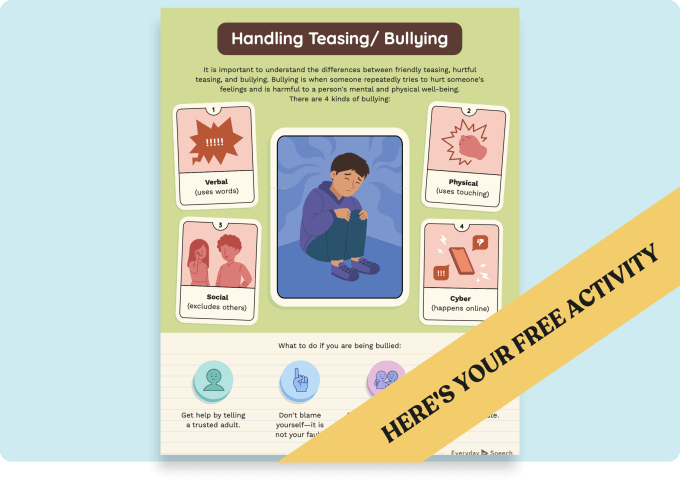Effective IEP Goals for Enhancing Whole Body Listening in High School Students
Get free social skills materials
No-prep lessons on self-regulation, emotional recognition, conversation skills, and more.
Sign up hereDownload 50+ Example IEP Goals
Customizable library of strengths-based goals
Special education plays a crucial role in providing tailored support for students with diverse needs. One vital aspect of special education is developing Individualized Education Program (IEP) goals that focus on essential skills, such as whole body listening. This blog post will discuss the significance of whole body listening and provide effective IEP goals and strategies to improve this skill in high school students.
Understanding Whole Body Listening
Whole body listening is a crucial skill that involves using one’s entire body to demonstrate active engagement and attentiveness during conversations. It not only impacts students’ learning but also their social interactions and overall wellbeing. When students practice whole body listening, they convey respect, interest, and empathy, fostering stronger connections with peers and teachers.
The Role of Specialists
Various specialists can play a significant role in supporting the development of whole body listening skills in students:
- Speech-Language Pathologists can help students understand and practice nonverbal communication elements such as eye contact, body posture, and facial expressions.
- Social Workers can provide guidance on improving social skills and navigating challenging social situations where whole body listening is crucial.
- Psychologists can assist in addressing any underlying issues that may hinder the development of whole body listening skills, such as anxiety or attention difficulties.
- School Counselors can offer support in fostering a positive school environment that encourages whole body listening and effective communication.
IEP Goals for Whole Body Listening
Here are some specific SMART IEP goals to enhance whole body listening skills in high school students, along with strategies and activities for implementation:
Goal 1: Improve Eye Contact
By [date], the student will demonstrate appropriate eye contact during conversations with peers and teachers in 90% of observed instances.
- Practice maintaining eye contact through role-playing exercises.
- Use visual cues, such as stickers or images, to remind students to make eye contact.
Goal 2: Enhance Body Posture
By [date], the student will exhibit attentive body posture (e.g., facing the speaker, sitting up straight) during class discussions and conversations with peers in 90% of observed instances.
- Provide explicit instruction on appropriate body posture during conversations.
- Offer regular feedback and reinforcement for displaying attentive body posture.
Goal 3: Demonstrate Active Listening
By [date], the student will show active listening (e.g., nodding, asking relevant questions) in 90% of observed conversations with peers and teachers.
- Teach students active listening strategies and practice through group discussions.
- Provide opportunities for students to engage in one-on-one conversations and offer feedback.
Implementing and Measuring Progress
To effectively implement these goals and measure progress, consider the following tips:
- Collaborate with specialists to develop tailored strategies for each student.
- Consistently monitor and document students’ progress in whole body listening skills.
- Adjust goals and strategies as needed based on students’ progress and individual needs.
Conclusion
Whole body listening is an essential skill for high school students, impacting their learning and social interactions. By setting effective IEP goals and collaborating with specialists, educators can support students in developing this vital skill. We encourage you to apply these IEP goals and strategies in your classroom and invite you to explore more resources at Everyday Speech Sample Materials.


